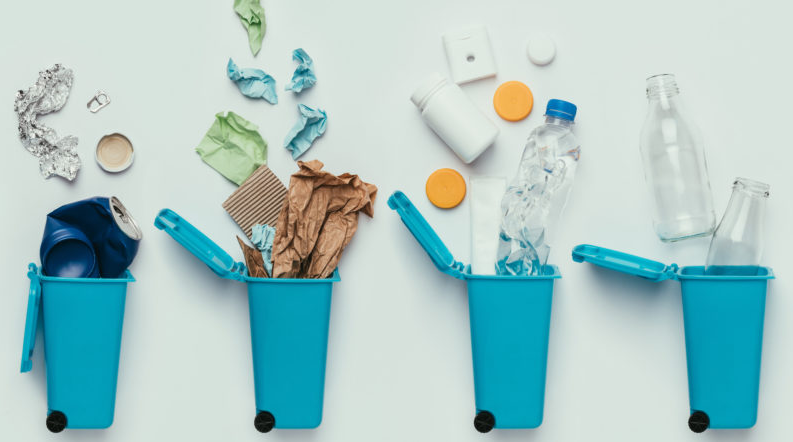How to improve your recycling habits
We may be leaving, but the EU wants the UK to stick to an agreed aim that it should be recycling half of its waste by the end of this year. So don't allow Brexit, or the covid-19 pandemic, to make you let up on recycling

We're getting much better at it...recycling that is. But there's still a long way to go before we can start closing down landfill sites in the UK, so take some time to analyse how much you're recycling at home and see if there's more you can do
Recycling means taking a product and reusing either all of its components or part of them to produce new products This can be done on an industrial level but its just as important that everyone does their bit by recycling household waste.
UK stats
Recent figures show the total waste generated by the UK amounted to some 222.9 million tons, with England’s waste contributing some 85 per cent of that total. The EU has set the UK the task of recycling at least half of its household waste by the end of next year. According to 2017 figures, the UK recycled 45.7 per cent of its household waste, up from 45.2 per cent in 2016. So there's quite a way to go to reach the 2020 target, assuming the British government keeps it even if the UK leaves the EU. And of course, the UK has set for itself the goal of become a zero-waste economy by 2050. This means all products should be reused through recycling.
Where do individuals come in?
Statistics show the average person will generate around 100,000 tonnes of waste in their lifetime. About 60 per cent of that takes the form of household waste, much of which could actually be recycled. If every person reduced their so-called landfill bin waste even by half, they would contribute a great deal towards the UK achieving its recycling targets. By developing good waste management habits, recycling will, if it's not already, become second nature. For example, white goods such as washing machines and fridges that no longer work, these days can easily be recycled. You need to consciously build the habit so recycling becomes an autonomic reaction.
Best starting point
If you feel you're not quite the recycling demon you should be, set yourself realistic goals and make it easy for yourself. For example, put a container for recycling close to the main household waste bin and think...could this piece of plastic be recycled, or can this old sheet go to the charity shop for ragging, which means the charity will get money for it and the sheet will be broken down again into fibres for respinning. The three Rs of waste management are, as the recycling sign tells us, reduce, re-use and recycle, and perhaps the first one is the place to start - reduce.
Reduce waste
Obvious, isn't it, that the less we have, the less we can throw away. So look to alternatives when it comes to containers. Don't buy single use bottles of water, get a reuseable steel one instead. Look for refill packs for things like washing up liquid. Buy laundry powder not liquid, as powder comes in cardboard boxes which are recyclable, washing liquids come in plastic bottles, which may be recyclable, but they're still plastic and we need to be moving away from plastic manufacture. Buy fruit and veg loose, not packaged. Don't overbuy food so you won't end up binning it. But if you do bin it, well don't bin it, put it in a counter top compost bin and let the council take your compost bags away with your garden waste. And always have a reuseable shopping bag folded up in a pocket for those emergency stops at the corner shop for milk and bread.
Re-use
Always think twice before throwing away anything. You can re-use things such as bottles, jugs, planters, plastic food containers, jam jars and so much more. Those plastic food takeaway containers can be re-used for leftover food in the fridge, while large containers can be used to plant herbs.
Any time you purchase packaged goods, start thinking about how you can re-use the container or the packaging. A big cardboard box can be used to store blankets or duvets in summer and kept in the loft storage space, for example.
Recycle
Many local councils are putting up large recycling points throughout boroughs, so learn where they are, and use them. There'll also be a main recycling depot where you can take bigger items such as furniture and white goods. If you need more than one recycling green bin from the council, call up and order another one, the council should provide it. And have a recycling bin in kids' bedrooms and drum into them that nearly everything can and must be recycled.